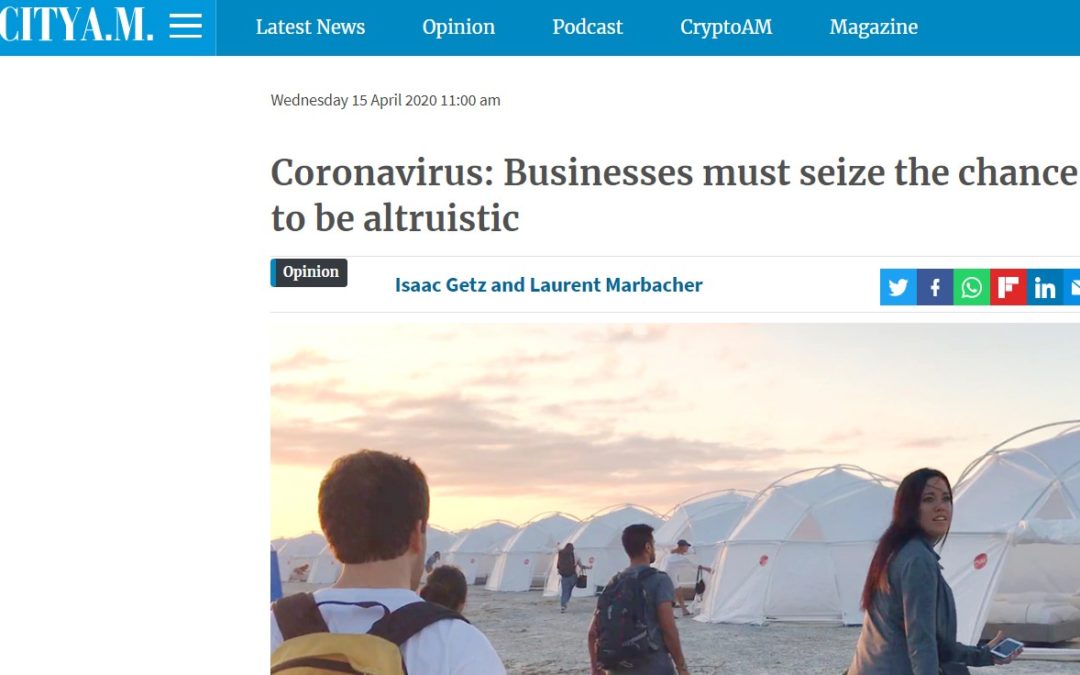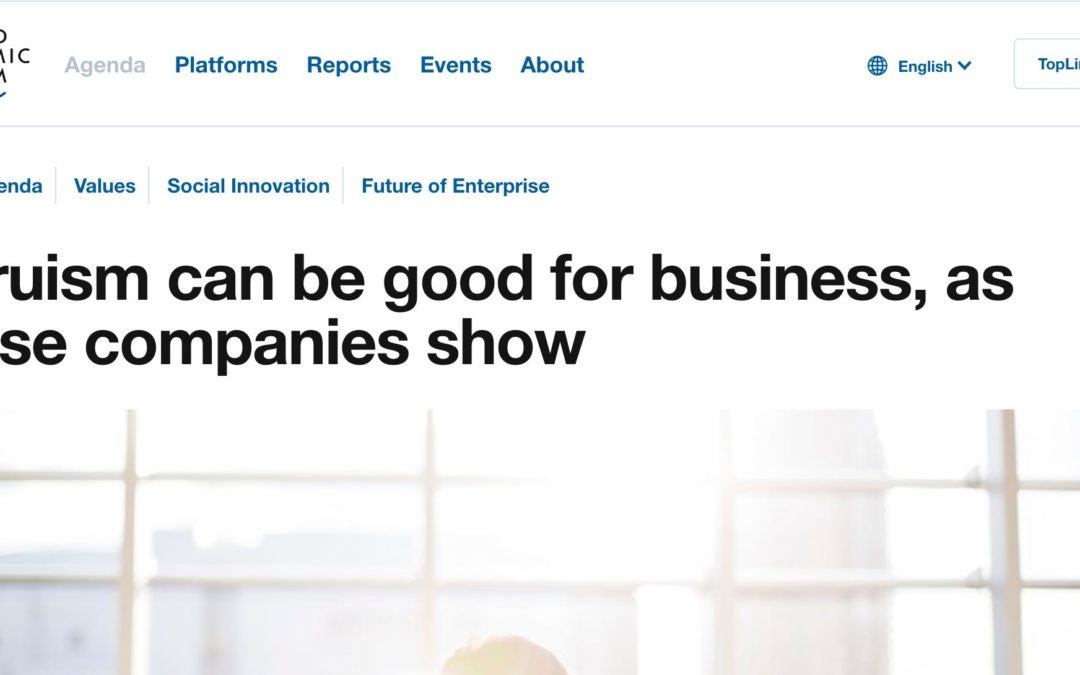
19 Avr 2020 | Articles, English, Par les auteurs/By the authors
 Here is an Op-Ed we have published in the British daily CITY A.M. on how some–altrusitically-minded– companies act during the COVID-19 crisis.
Here is an Op-Ed we have published in the British daily CITY A.M. on how some–altrusitically-minded– companies act during the COVID-19 crisis.
Coronavirus: Businesses must seize the chance to be altruistic
Isaac Getz and Laurent Marbacher
We recently interviewed the Manufacturing Director of a large company who told us that in response to the COVID-19 pandemic he had gathered all his suppliers and told them frankly: “We’ll face this together. We share everything.”
This leader could easily have placed the entire burden of plummeting demand on the shoulders of suppliers by drastically lowering orders. Many companies are doing this globally. Instead he chose to share the load, by lowering external orders and his own production equally – something those suppliers will not forget.
At this time of unprecedented turbulence, the instinct for businesses may be to preserve their own interests, cutting off suppliers and cancelling purchasing contracts – however this won’t help them once the crisis is over.
Companies such as the above do far better during times of trouble, since some of their partners may already help them. More importantly, when the storm is over, they are surrounded by real partners – who remember their acts and are ready to help them – instead of being alone and on their knees.
Read the full article here

18 Oct 2019 | Articles, Conférences/Rencontres, English, Par les auteurs/By the authors
Le 17 octobre, nous avons publié un article sur le site du World Economic Forum autour des idées de « L’entreprise altruiste ».
On Oct. 17, we have published an article on the World Economic Forum site on « The altruistic corporation » topic.
Despite all the benefits that capitalism has brought to society, we have reached the moment when its downsides – social and environmental – have begun to outweigh its positive effects.
Attempts to eliminate the negative social effects of business started as far back as the 1800s. Nevertheless, the dominant corporate attitude has always been the pursuit of financial value, either unconstrained – leaving social concerns to philanthropy – or, more recently, constrained by the simultaneous pursuit of the social value, through such approaches as corporate social responsibility (CSR), bottom-of-the-pyramid ventures or even movements like B-corporations or ‘conscious capitalism’.
These approaches do create certain social value, but this creation is constrained by the pursuit of profit. In sum, creating social value is considered OK as long as it does not harm your bottom line.
So why has a large Japanese pharmaceutical company, Eisai, delivered 2.2 billion tablets of its drug against elephantiasis, a painful and profoundly disfiguring disease threatening 886 million people in 52 countries, to the World Health Organization for free? Why has LSDH, a leading French milk and juice packer, created a little lodge next to its main entrance to provide shelter and showers to outside drivers while they are waiting for long hours for their trucks to be loaded? Why does the FruitGuys, an American fruit-delivery company, agree to buy all of its supplier’s pears, even when they do not reach quality standards, because of an accident in his orchard?
To read further/Pour continuer à lire…

 Here is an Op-Ed we have published in the British daily CITY A.M. on how some–altrusitically-minded– companies act during the COVID-19 crisis.
Here is an Op-Ed we have published in the British daily CITY A.M. on how some–altrusitically-minded– companies act during the COVID-19 crisis.



